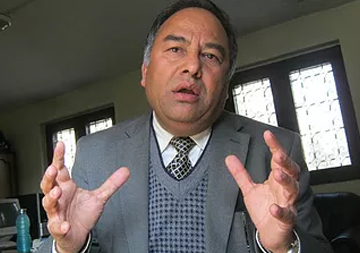Development of Common approaches for transformation of social and economic justice: A Case of Consolidated Social Protection System in Nepal
February 9, 2019 | Dinesh Devkota

Nepal is the newest entrant into the federal systems of democratic governance. So, it is facing multidimensional risks and vulnerabilities in the overall development processes. The country is trying to enforce principles of fundamental civil, political, economic, social, cultural and development rights of the citizens in accordance with the newly promulgated constitution. In the meantime, it has also embarked on crafting policies, plans and programs to materialize for the 2030 Agenda for Sustainable Development with goal-wise synchronized efforts.
However, there remain many challenges in addressing environmental and climate risks and vulnerabilities, cross-border migration, crime, and trafficking in person not only within the national boundary but also in the South Asia region.
The Government of Nepal is party to the Universal Declaration of Human Rights and various other international human right instruments (including ICCPR, ICESCR, CEDAW, and CRC), SDG, SAARC Development Goals and many other declarations. Directive Principles of the current Constitution of Nepal 2015 as well as different national and sectoral policies and plans have expressed commitments to effective service delivery and expanded the social protection base. Traditionally, the government has been financing mainly public sector workers’ social security benefits, and some other schemes to cover the most vulnerable sections of society. Since the 1990s the government has introduced several measures of social protection targeting most vulnerable segments of the population by extending monthly allowances to the elderly, widows, handicapped, people facing severe health problems, etc.
Thus, social protection is recognized as an effective alternative approach to address the problems and vulnerability of the historically marginalized. There is realization that benefits of market driven neo-liberal economic growth models do not automatically trickle down to the poorest and most vulnerable sections of the population. In fact, poverty has multiple facets that reinforce hunger, malnutrition, ill health, illiteracy, voicelessness and powerlessness. The systematic forms of exclusion and violence, unemployment and underemployment, and livelihood risks and vulnerabilities have remained at the centre of creating and perpetuating poverty and injustice. Social protection epitomizes the human security approach and tries to offer a broader, practical and effective ways to reduce chronic vulnerability, poverty and inequality. Income centric measurement of poverty does not capture the multiple deprivations and vulnerabilities facing the majority of people.
Several programs planned and implemented in Nepal in the sector of social protection, are far from adequate given the breadth of the inequality and dimensions of injustices. Some programs focus on immediate relief to conflict affected people, some on poverty reduction; others focus on public works through Food for Work programs, school meals, others on labor market reforms, social care as well as micro-finance and micro insurance initiatives. There has been substantial increase in social security allowance for senior citizens, single women, people with disabilities, endangered communities and many more, however, not enough to address the entire range of the society that are in need of meaningful social protection schemes. I believe that there is much scope to improve the various schemes and options of social protection interventions and experiences along with their funding and delivery mechanisms and its systematic framework that integrates with the existing plan and program based on the national context of Nepal.
It is evident however that there is significant potential for ‘social commons’ that encompass dimensions of social, environmental and economic resources in the region from the perspective of social and environmental justice and human rights vis a vis development rhetoric, poverty eradication, food security, health, education, democracy, trade, culture, gender and others. Finally, it is clear that countries can evolve common approaches for transformation of environmental, social and economic arenas while putting the people and communities in the centre of development.
Dinesh Devkota is Visiting Professor, Centre Department of Environmental Science (CDES), Tribhuvan University (TU), Nepal. Chairman, of Centre for Green Economy Development – Nepal (CGED- NEPAL) and also involved in many institutions in an advisory capacity. He is Former Hon. Vice Chairman and former Member (Jan 2009-Sept 2011) of the National Planning Commission (NPC), Government of Nepal.


